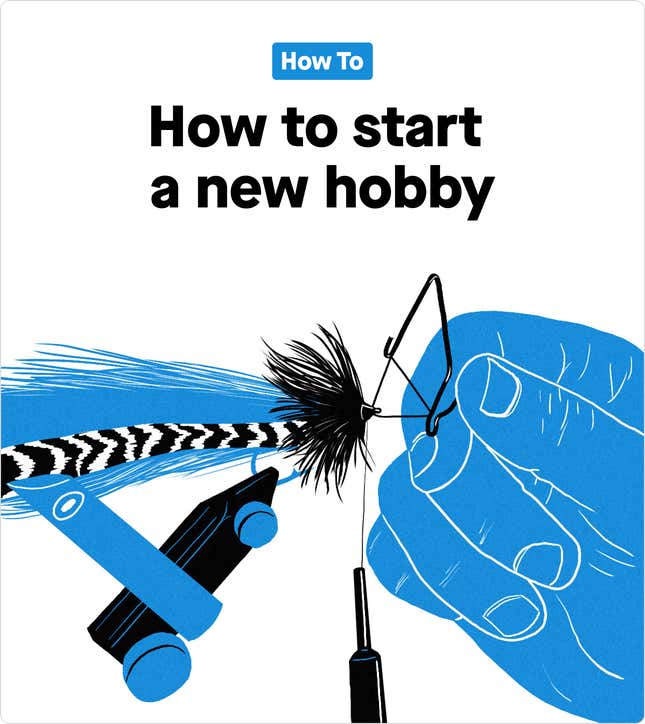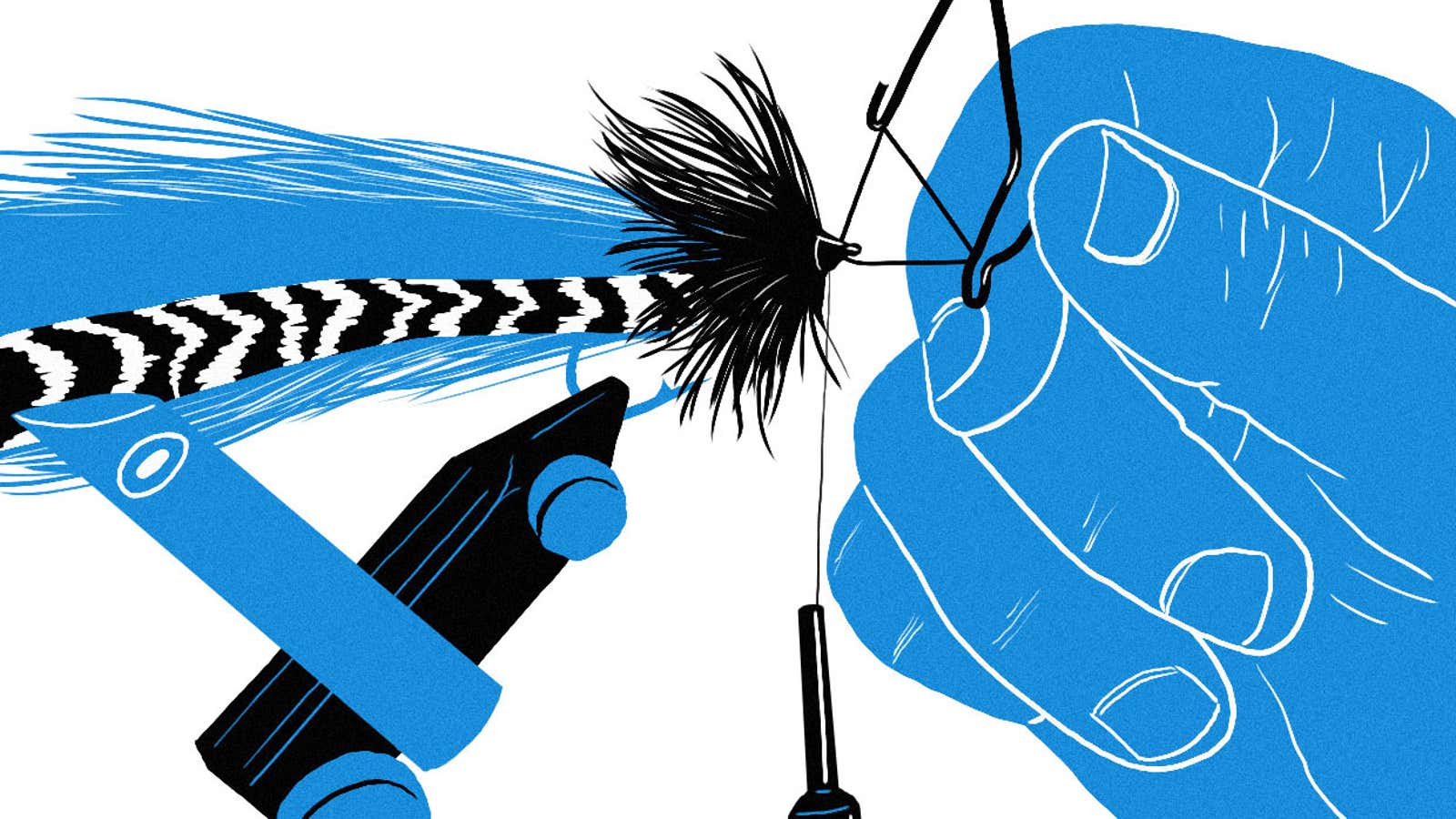
Hi Quartz members,
Baking sourdough. Learning a language. Tie-dye. Roller skating. These were just some of the hobbies that the more enterprising (and safe) among us used to take up their suddenly ample free time early in the pandemic. Social lives previously filled with dinner plans and weekend getaways became fertile soil for new skills and crafts.
Hobbies are more than a productive way to pass the time. They can improve your mental health, help you be more creative, and lots more. The definition of hobby is pretty loose—“a pursuit outside one’s regular occupation engaged in especially for relaxation” per Merriam-Webster—which means the options are only as limited as your imagination.
Whether you’re late to the hobby game or are looking for something to talk about other than work, we’ve got some good reasons to prioritize hobbies along with some suggestions for new ones to try.
All work and no play
Now, let’s be clear—being productive all the time is unnecessary, and unpleasant. But there’s something between being “on” for work and turning your brain off to watch TikTok or Netflix. It takes a little effort to actually do something, but research suggests hobbies are good for you. Benefits include:
💆 Lower stress
🏃♀️ Better physical health
🎨 Greater creativity
🧠 Improved cognitive ability
👔 Better work productivity
🤝 More friends
✊ Outlet for activism
What hobby is right for you?
Before choosing a new hobby, you should ask yourself a few questions:
- How much time/money/space do I want to dedicate to this?
- What do I want to get out of it?
- What is the element lacking in my life that I’d like to make up for in a hobby?
To that last point, here are a few ideas:
If you want a creative outlet… arts and crafts can help you produce something tangible that you can show off or even gift to others. Researchers also found that craft hobbies help improve cognitive ability in older adults.
Consider: Painting, drawing, knitting, crocheting, calligraphy, jewelry making, soap making, pottery, scrapbooking, woodworking.
If you want to move your body… regular exercise is good for both the body and the brain. Exercise lowers your blood pressure, strengthens your bones, and helps you get better sleep, too. A 2015 study found that cognitive decline is nearly twice as common in inactive adults than active adults.
Consider: Running, bouldering, archery, basketball, hiking, martial arts, yoga, ice skating, dance.
If you want to build a community… hobbies are also one of the best ways to meet new friends and build a social circle. Community-centered hobbies can help foster a sense of agency and activism as well.
Consider: Volunteering (soup kitchens, animal habitats, social justice nonprofits, charities), book clubs, trivia leagues, geocaching, gaming.
If you want to learn something new… it’s never too late. In a 2016 study, Harvard researchers write: “On the practical side, not only is there no age at which humans are performing at peak at all cognitive tasks, there may not be an age at which humans are at peak on most cognitive tasks.” Yes, it’s scary, nerve-wracking, and embarrassing to be a beginner—but the good news is that’s expected. It’s a hobby, not your job.
Consider: Coding, instruments, makeup, languages, improv, origami, chess, flower arranging, mixology, baking.
Make it a habit
It’s perfectly okay to try out a hobby, decide you don’t like it, and move onto the next. But if you do want your hobby to be something you do regularly, you’ve gotta make it a habit like any other.
- Add structure. Taking a class that meets regularly is an easy way to do this. Also helpful are meetup groups, or simply creating a recurring window on your calendar during which you solely focus on your hobby of choice.
- Incentivize yourself. Whether it’s social interaction, a fancy coffee, or the result of the task itself, make sure you show yourself the time spent was worth it.
- Be patient. One 2009 study (pdf) found that it takes an average of 66 days for a task to become automatic, to form a habit. But it can take as little as 18 days and up to 254! Everyone is different.
Have a great weekend,
—Jasmine Teng, associate membership editor (and serial hobbyist)
—Alex Ossola, membership editor (best hobby: baking)
One 👹 thing
Know someone whose hobby became their full-time job? Maybe their weekend soapmaking turned into a business, or their propensity to post makeup tutorials on YouTube secured them a lucrative sponsorship.
The hobby-to-side hustle pipeline is all too common. We romanticize the idea of monetizing our hobbies—who wouldn’t rather do something they enjoy instead of whatever boring job they were doing before?
But you don’t have to do that. Hustle culture also glorifies success, but hobbies can be casual. It’s okay to suck at your hobby, to stop midway if you’re not enjoying it anymore, to plateau in ability—it’s for leisure, not mastery or profit.
The TL;DR is: Hobbies don’t need to have an end goal or purpose. You can do something simply because it makes you happy.
